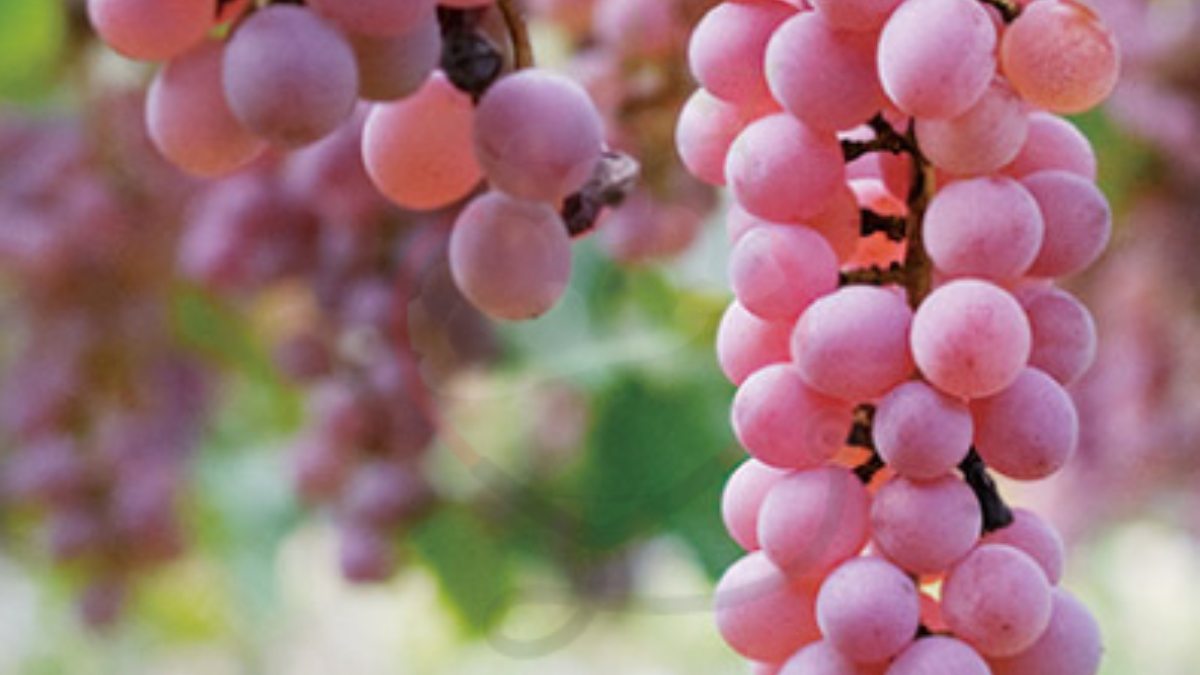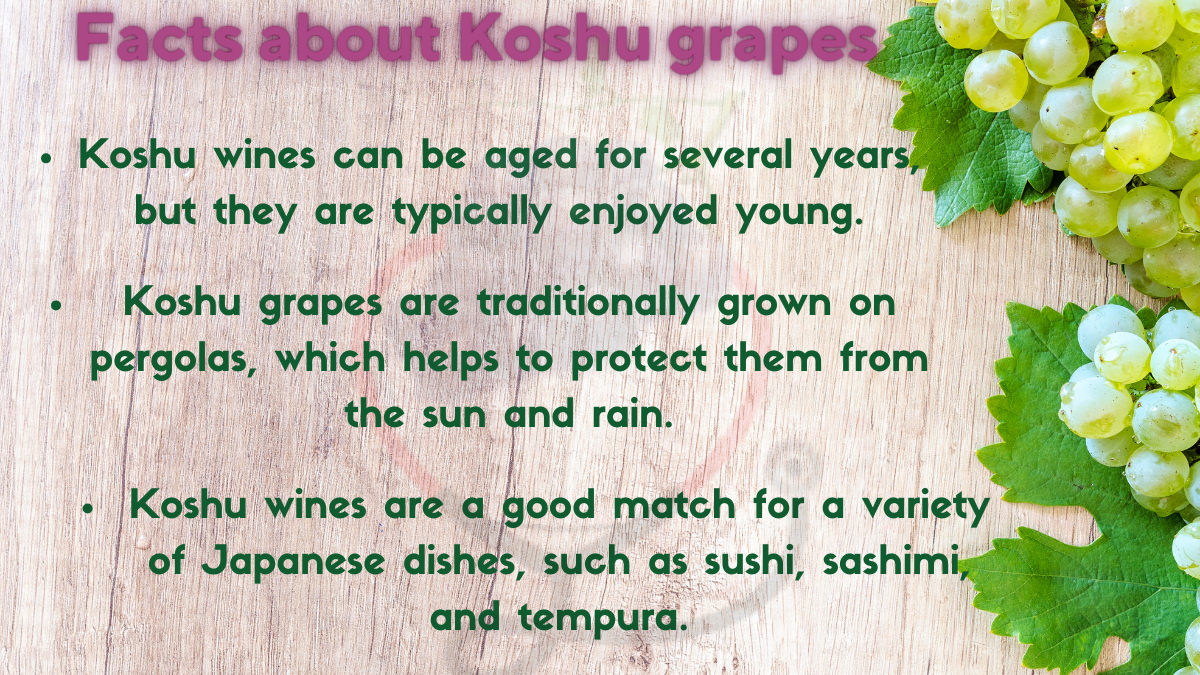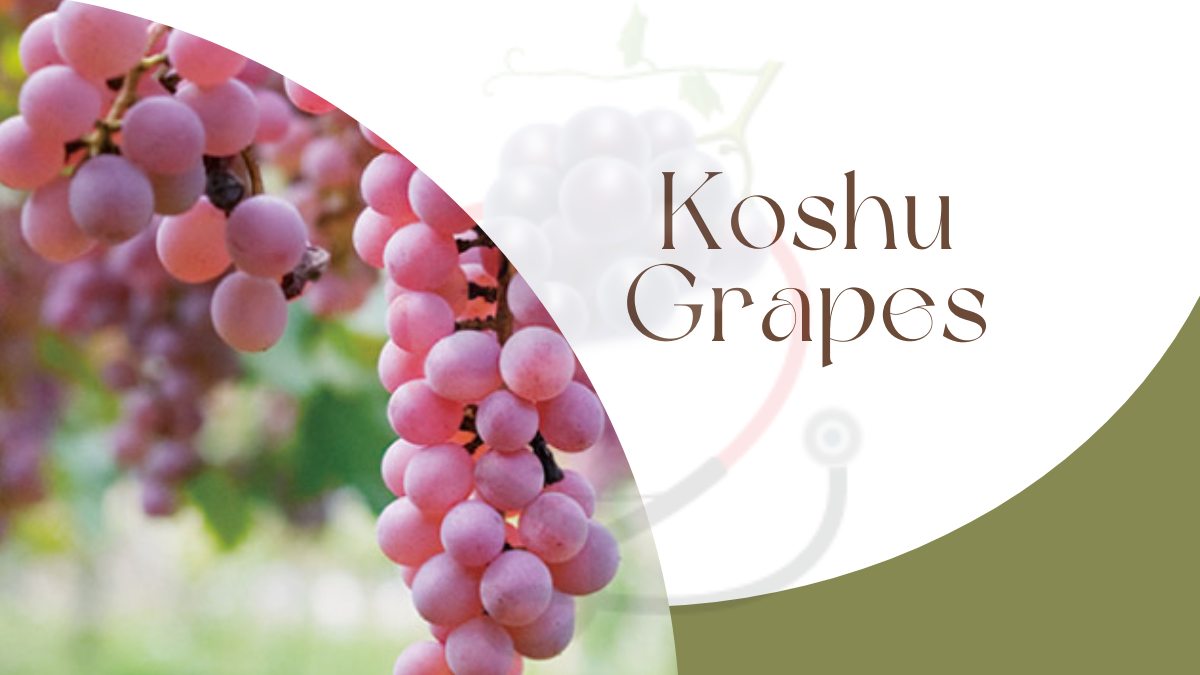Koshu grapes are a white wine grape variety that has been grown primarily in the Koshu Valley in Yamanashi Prefecture, Japan, for over 1,000 years. [1]
They are thought to be a hybrid of European Vitis vinifera and one or more East Asian Vitis species.
In this article we will talk about the origin, Characters, Cultivation and benefits of Koshu grapes.

Origins of Koshu Grapes
Koshu grapes have a rich history dating back over a thousand years. These grapes are native to the Yamanashi Prefecture, nestled at the base of the stunning Mount Fuji.
Legend has it that Koshu grapes were brought to Japan by early Portuguese explorers in the 16th century.
Since then, they have adapted remarkably to Japan’s unique climate and terrain.
Characteristics of Koshu Grapes
Koshu grapes are renowned for their distinctive characteristics, making them stand out in the world of wine. Here are some of their most notable traits.

- Koshu grapes are relatively large, with thick, pink skins.
- Koshu wines are typically light-bodied and dry, with aromas and flavors of citrus fruits, peach, and jasmine. They can also have a subtle minerality.
- Koshu grapes are naturally high in acidity, which gives their wines a crisp and refreshing taste.
- Koshu grapes are relatively resistant to disease and can be grown in a variety of climates.
Cultivation and Winemaking
Koshu grapes thrive in Japan’s cool climate, where the temperature fluctuations between day and night are significant.
This climate is ideal for preserving the grape’s natural acidity while allowing them to ripen to perfection.
Winemakers in Japan have mastered the art of cultivating Koshu grapes, employing both traditional and modern techniques.
From hand-harvesting to state-of-the-art fermentation processes, every step is taken with precision and care to preserve the grape’s unique characteristics.
Rise of Koshu Wine
Over the past decade, Koshu wine has gained international recognition and acclaim.
Japanese winemakers have worked tirelessly to perfect their craft and introduce the world to the wonders of Koshu grapes.
Today, you can find Koshu wines on the menus of renowned restaurants and in the cellars of wine collectors worldwide.
Health Benefits of Koshu Grapes

1: Antioxidants
Koshu grapes are rich in antioxidants like resveratrol, [2] which may help combat oxidative stress, reduce inflammation, and promote overall health.
Antioxidants can also protect cells from damage caused by free radicals.
2: Heart Health
Regular consumption of Koshu grapes may support cardiovascular health by reducing the risk of heart disease. [3]
Antioxidants in these grapes may help lower blood pressure and improve blood vessel function.
3: Skin Health
The antioxidants in Koshu grapes help to maintain skin health by fighting free radicals and potentially reducing the signs of aging, such as wrinkles and fine lines. [4]
4: Weight Management
Koshu grapes are relatively low in calories and fat, making them a healthy snack option for those looking to manage their weight. [5]
The fiber content also promotes a feeling of fullness.
5: Digestive Health
The dietary fiber in Koshu grapes aid digestion and promote regular bowel movements, potentially reducing the risk of constipation. [6]
Facts about Koshu grapes

- Koshu grapes are a relatively early-ripening variety, which makes them well-suited to the Japanese climate.
- Koshu grapes are traditionally grown on pergolas, which helps to protect them from the sun and rain.
- Koshu wines can be aged for several years, but they are typically enjoyed young.
- Koshu wines are a good match for a variety of Japanese dishes, such as sushi, sashimi, and tempura.
Koshu grapes are a hidden gem in the world of wine. With their unique characteristics, rich history, and versatility, they have rightfully earned their place on the global stage.
Whether you’re a seasoned wine enthusiast or a curious beginner, Koshu wines offer a delightful journey for your taste buds.
FAQs
Where can I buy Koshu wines outside of Japan?
You can often find Koshu wines in specialty wine shops or through online retailers that offer a diverse selection of international wines.
Are Koshu wines expensive?
Koshu wines come in a range of price points, making them accessible to a wide range of consumers. Some premium bottles can be quite expensive, while more affordable options are also available.
What makes Koshu grapes unique compared to other grape varieties?
Koshu grapes’ pale skin, crisp acidity, and floral aromas set them apart from many other grape varieties, giving their wines a distinct character.
Can Koshu grapes be grown outside of Japan?
While Koshu grapes are closely associated with Japan, some experimental plantings have been done in other countries with similar climate conditions. However, the best Koshu wines are still found in Japan.
What is the best way to enjoy Koshu wines?
Koshu wines are best enjoyed chilled, and they pair wonderfully with Japanese cuisine, seafood, and light, fresh dishes.

